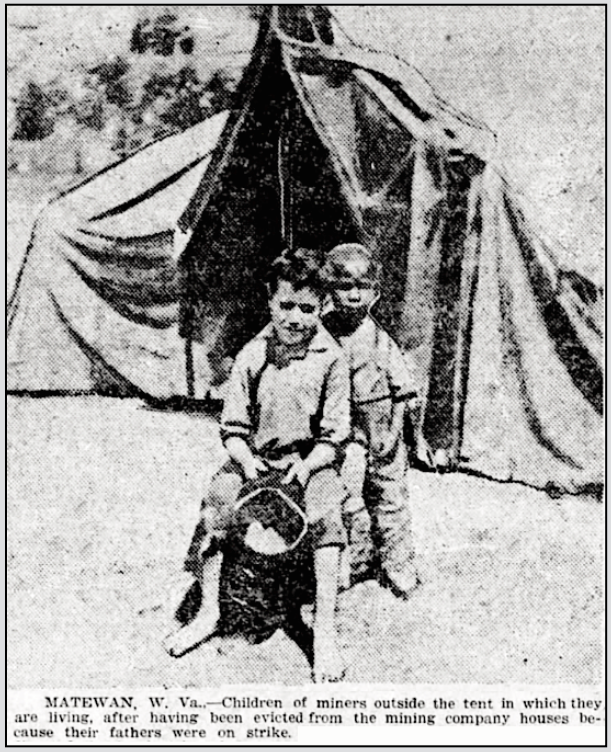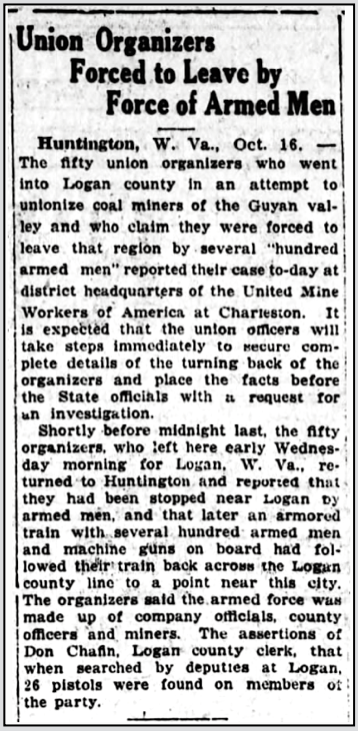 ———-
———-
Hellraisers Journal – Tuesday December 14, 1920
Mingo County, West Virginia – Report from Miners’ Tent Colonies
From The Nation of December 8, 1920:
Labor’s Valley Forge
By NEIL BURKINSHAW
DRIVEN from their homes at the point of a gun for the crime of joining the union , more than four hundred miners and their families are camping in tents on the snow-covered mountains in Mingo County, West Virginia. To add to their difficulties federal troops have been summoned to play the ancient game of keeping “law and order.” But it will take more than the cold clutch of winter and the presence of soldiers to make the miners surrender in their fight for recognition of their right to unionize.
Across the Tug River, a narrow stream dividing Mingo County from Kentucky, is the union workers’ “No Man’s Land” held by the gunmen of the Kentucky coal operators who waylay, beat, and sometimes kill anyone even suspected of union affiliations. The same condition obtains in McDowell County of West Virginia just south of Mingo. The region was settled in pre-Revolutionary days by pioneers who crossed the mountains from Virginia and North Carolina, a hardy stock of Welsh, English, and Scotch from whom the miners are descended. One rarely encounters a foreigner there so that the industrial war now raging can not be ascribed-as is the convenient practice-to the agitation of the foreign element .


 ———-
———-

 ———-
———-